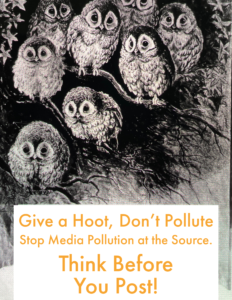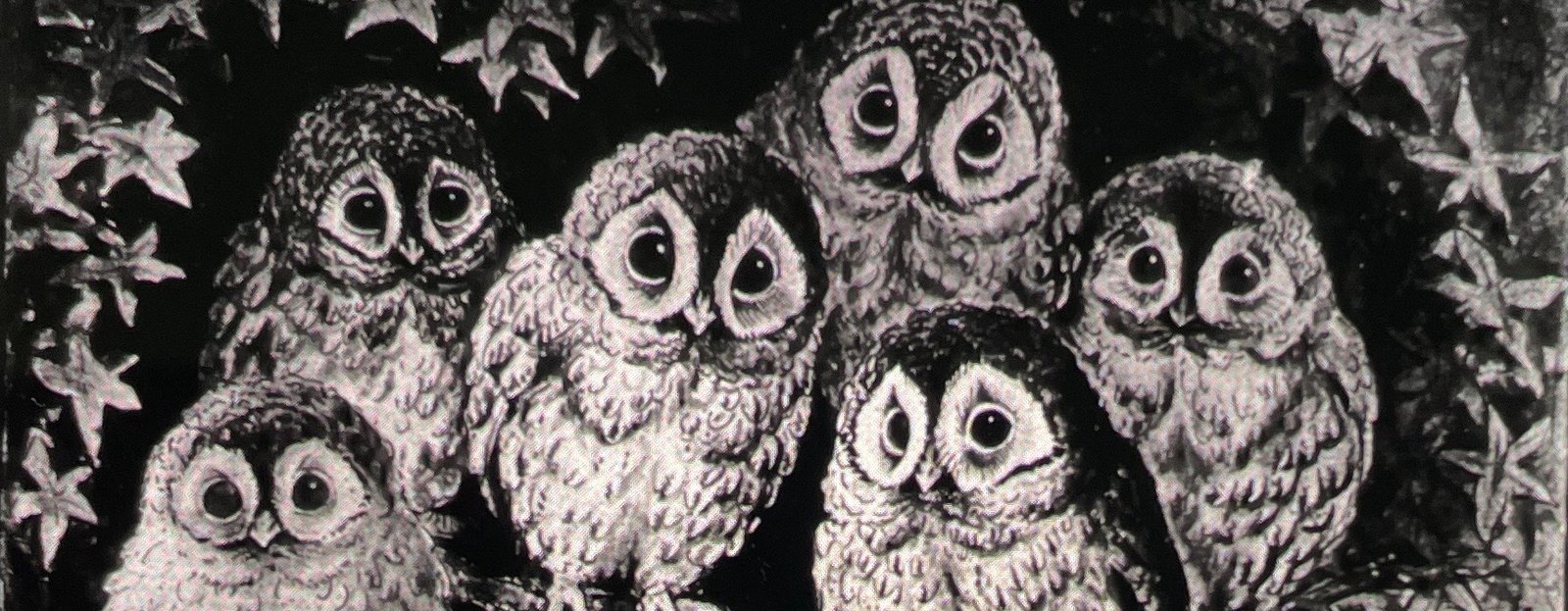Stop media pollution at the source: think before creating and posting!

Once upon a time when you wanted to take a picture you needed to go to the store, spend cash on film, put the film into your camera and take the picture. Then you would either go to the darkroom with your film, or drop your film at a developer and wait. Eventually you would be able to see you photos. You didn’t get to see them immediately – you had to wait. This process meant that pictures were special – they cost something in time and money to produce.
Do you look at the pictures you take on your phone?
Our Current Media Environment:
2,500 new videos are uploaded to youtube every minute 1. There are 95 000 000 posts to instagram 2 and 4.75 Billion facebook posts 3 a day. Sobering indeed. We are drowning in an overwhelming quagmire of media. The canonical advice to post on social media daily produces so much content that it becomes incomprehensible; an endless scroll of meaningless memes, gifs, and graphics all screaming for our attention.
But, where did this advice come from? And is it good advice?
The internet has democratized media production, and philosophically that is fantastic. It allows us to have access to stories and ideas that were impossible when media was controlled by an elite few. But, the monetization structure of social media means that the audience IS the product – your attention is what is being sold to advertisers. The addictive, almost involuntary need to scroll through your feed is not accidental – it is by design. In fact conglomerates like meta have spent vast sums of money ensuring you behave this way.
What is media pollution and why is it important?

Media pollution is the increasing clutter of our cultural and mental spaces; the messages, data, news, images, sounds. The constant presence of screens, posters, billboards. In city streets, pubs, subway platforms, waiting rooms, and hotel lobbies. The inescapable presence of media demanding attention, that we feel something, buy something, decide something, or have an opinion. It is no wonder that anxiety related disorders, and attention deficit disorder are amongst the most prevalent complaints globally today.
As an independent media producer I spend a lot of time thinking about this. Back in 2005 I was in college and my graphic design instructor, bought up the sheer volume of images we are faced with every day and this was BEFORE facebook really took off, just before smart-phones became the default 24/7 broadcast system.
I was (and am) a film-maker at heart and I feel this more than ever now that video is the ‘must-have’ media, and just as it seems there is a actually a way to have a career as an independent film-maker I find myself talking clients out of making videos more often than I make them.
* read 5 reasons NOT to make a video + 1 reason you should make one.
The Stop Media Pollution Manifesto:
But what does this mean for us – me the independent producer and you the small grassroots organization? Does it mean in order to be socially responsible we should pack in our social media accounts and give-up? No, well maybe yes, but no.
It means that we need a manifesto of course.
Personal Broadcasting Manifesto – Making Media Mean Something.
- Treat social media as a channel to broadcast critical information. Keep it sparse, keep it relevant. Say only what can be read by someone scrolling.
- Limit your broadcasts only to people who have subscribed.
- If you are paying for ads, limit to people who would want to hear what you are saying.
- Do not aspire to post every day for the sake of posting.
- Never ask people to pollute for you by asking them to share –
- Don’t try to be hip, appealing, or authentic – don’t try to be anything.
- Never lie.
- Give up on going ‘viral – don’t rely on social media as your main channel, make it the ‘extra’ you do after you have a plan in place for other ‘channels’: letters, emails to email list, in-person events, personal phone calls.
- Don’t hire a ‘social-media expert’ unless they are also an expert in your field.
- Hire someone who knows how to tell a story.
- Don’t try to game the system
- Being able to post, doesn’t mean you should post.
- If you wouldn’t say it in person, don’t say it online.
Eventually the yelling will stop and we will find ourselves in a sea of tranquility…
1. https://www.wyzowl.com/youtube-stats/#:~:text=How many videos are uploaded to YouTube every day?,average length of 4.4 minutes.
2. https://techjury.net/blog/how-many-posts-are-posted-on-instagram-per-day/
3. https://blog.wishpond.com/post/115675435109/40-up-to-date-facebook-facts-and-stats#:~:text=24 .,by Facebook users each day.



No responses yet